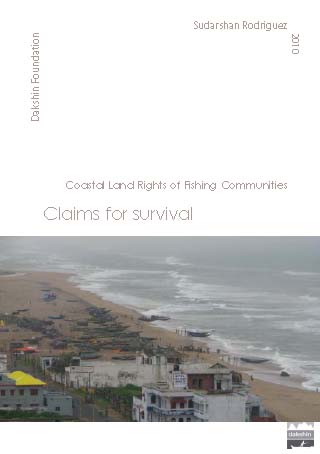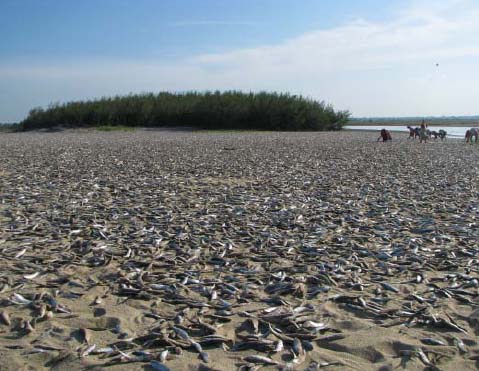 Marine-coastal ecosystems and coastal communities are poorly represented in the public debates on India’s social and environmental problems. Coastal and marine ecosystems are the backbone of a fisheries economy that supports livelihoods of millions directly and several more indirectly.
Marine-coastal ecosystems and coastal communities are poorly represented in the public debates on India’s social and environmental problems. Coastal and marine ecosystems are the backbone of a fisheries economy that supports livelihoods of millions directly and several more indirectly.
Community groups such as fishers and other coastal populations enjoyed customary or traditional rights to exploit resources and to fish in adjacent coastal areas. The current state of fisheries finds its genesis in the modernization programme introduced by the Government of India to ‘develop’ the sector with the focus for development through the maximisation of production. In the late 1970s, modern fishing methods threatened the livelihoods of these communities and coastal ecosystems. Mechanised craft and gear, principally trawlers with bottom trawling gear, severely impacted fishing stocks.
Fisherfolk in India have struggled for greater control over the seas and resource management, struggles which have been directed both inward as well as against the State. The conflict over the coastal space is mostly between fishing communities and other new users and interest groups. Access to coastal resources is now being thrown open to all, giving a new meaning to the idea of ‘coastal commons’. There are very clear linkages between the rights to the coast and the right to fish as without the former, the latter will be difficult to operationalise and eventually rendered meaningless.
The Coastal Regulation Zone (CRZ) Notification, 1991 has been the only legislation with some mention and reference to customary rights of fishing communities on land in the coastal zone. However, it did not contain provisions and details to ascertain or establish these rights. Despite this, fishing communities have seen the CRZ in its 1991 form as an instrument in their favour as it regulates all activities that can potentially impact the coast and community livelihoods. However, the twenty one odd amendments to the CRZ Notification were mostly in favour of development pressures and special interest lobbies.
some mention and reference to customary rights of fishing communities on land in the coastal zone. However, it did not contain provisions and details to ascertain or establish these rights. Despite this, fishing communities have seen the CRZ in its 1991 form as an instrument in their favour as it regulates all activities that can potentially impact the coast and community livelihoods. However, the twenty one odd amendments to the CRZ Notification were mostly in favour of development pressures and special interest lobbies.
This backdrop forms the driving force behind this report which seeks to argue a case for according coastal land rights to fishing communities.
The report is structured into the following four sections -
- Section I of this report provides a background of the coastal communities and discusses how in the past, India’s coastal areas and resources were managed within a framework of traditional knowledge accumulated over the centuries.
- Section II of this report presents findings from key studies on beach and coastal land use by fishing communities in India. It illustrates the point that large tracts of coastline space beyond the village settlement/hamlet are used by fishing communities for their livelihood.
- Section III traces the demand of housing and land rights among fisher groups as well as the provision of the same in the coastal legislation framework. It also gives an overview of how environmental legislative reforms initiated by the Ministry of Environment and Forest have undermined protection of livelihood concerns in favour of unsustainable development. It also reviews the various committees and their recommendations on rights of fisher communities and their livelihood concerns.
- Section IV concludes with an analysis of the discourse around fisher coastal land rights. It also provides a broad list of recommendations, a sort of road map for ensuring the rights of coastal communities.
The report concludes that given that fishing communities are integral to the coastal areas of India, the State has to recognize the rights of the fishing community to access and use of beach space, as well as regulate the entry of external actors. There has been a consistent demand to recognise the rights of fishing communities to access and use the coastal space. There was also a very clear demand for the unambiguous role and responsibility of fishing communities in the management and protection of the coasts.
The key focus of the recommendations made here is to evolve and strengthen government policies - along with community-based governance structures, for the control, rights and access of coastal resources, particularly coastal lands. Only by ensuring coastal land rights of fishing communities as defined by socio-cultural traditional boundaries, can a balance between development planning, coastal management and fisher livelihoods be achieved.
Download the report below -
/articles/claims-survival-coastal-land-rights-fishing-communities-report-dakshin-foundation